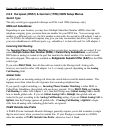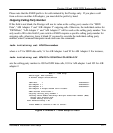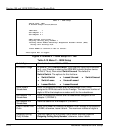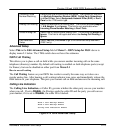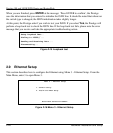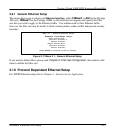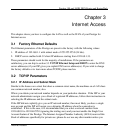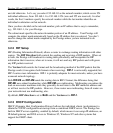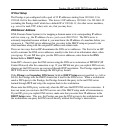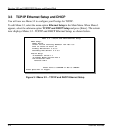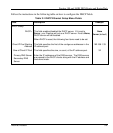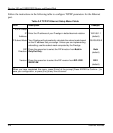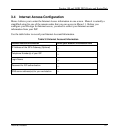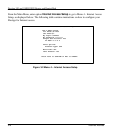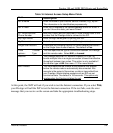
Prestige 100 and 100IH ISDN Router and Router/Hub
3-2 Internet Access
are told otherwise. Let’s say you select 192.168.1.0 as the network number; which covers 254
individual addresses, from 192.168.1.1 to 192.168.1.254 (zero and 255 are reserved). In other
words, the first 3 numbers specify the network number while the last number identifies an
individual workstation on that network.
Once you have decided on the network number, pick an IP address that is easy to remember,
e.g., 192.168.1.1, for your Prestige.
The subnet mask specifies the network number portion of an IP address. Your Prestige will
compute the subnet mask automatically based on the IP address that you entered. You don’t
need to change the subnet mask computed by the Prestige unless you are instructed to do
otherwise.
3.2.2 RIP Setup
RIP (Routing Information Protocol) allows a router to exchange routing information with other
routers. The RIP Direction field controls the sending and receiving of RIP packets. When set
to both, the Prestige will broadcast its routing table periodically and incorporate the RIP
information that it receives; when set to none, it will not send any RIP packets and will ignore
any RIP packets received.
The Version field controls the format and the broadcasting method of the RIP packets that the
Prestige sends (it recognizes both formats when receiving). RIP-1 is universally supported; but
RIP-2 carries more information. RIP-1 is probably adequate for most networks, unless you have
a unusual network topology.
Both RIP-2B and RIP-2M sends the routing data in RIP-2 format; the difference being that
RIP-2B uses subnet broadcasting while RIP-2M uses multicasting. Multicasting can reduce the
load on non-router machines since they generally do not listen to the RIP multicast address and
so will not receive the RIP packets. However, if one router uses multicasting, then all routers on
your network must use multicasting, also.
By default, RIP direction is set to Both and the Version set to RIP-1.
3.2.3 DHCP Configuration
DHCP (Dynamic Host Configuration Protocol) allows the individual clients (workstations) to
obtain the TCP/IP configuration at start-up from a centralized DHCP server. The Prestige has
built-in DHCP server capability, enabled by default, which means it can assign IP addresses, an
IP default gateway and DNS servers to Windows 95, Windows NT and other systems that
support the DHCP client.



